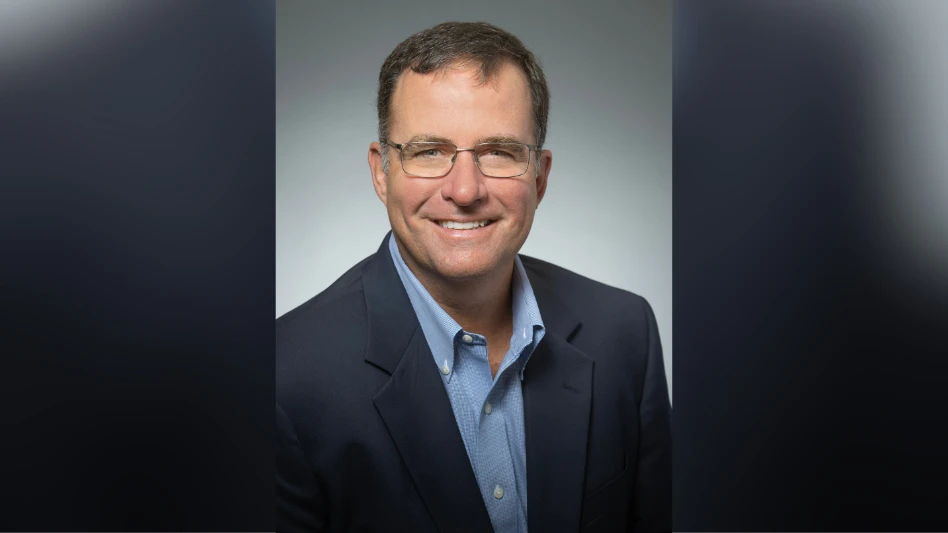
I want to take you back to when I was 14 years old. That’s when I started my career in the landscape industry. It was summer, and I’d ride my bike to work, trimming Christmas trees for a little extra cash. At first, I thought this was just a typical job where I could earn some money and have fun. But what I didn’t expect to find was an environment where drug and alcohol use was the norm. Coming from a pretty normal home, it really surprised me that many of my coworkers were either drinking heavily or using substances on the job.
At 14, I didn’t fully understand the gravity of the situation. I was young and impressionable, and like most teenagers, I wanted to fit in. Instead of staying away from it, I found myself getting caught up in the same lifestyle. After all, this was just a summer job, right? I thought it wouldn’t matter.
But looking back, that’s when my unhealthy relationship with alcohol began. Drinking became part of the job. It didn’t seem like a big deal at the time — I was just a kid, and everyone else was doing it. But it wasn’t long before I moved on to another landscape company, hoping things might be different. Unfortunately, I quickly learned, from my experiences, that substance use was embedded in the culture of the industry. There wasn’t a single sober person in that company, either.
Some of my coworkers had addictions so severe that one would shoot up during lunch every day. He was a hardworking guy, but the drugs consumed him. Tragically, he didn’t live much longer. Many of the people I worked with during those years who struggled with drug addiction passed away at a young age. I struggled with alcohol and drug addiction during my teenage years into my 20s. I could’ve turned out just like them, but I had the support system around me to help me through those dark times.
Substance abuse not only destroys lives, but in some areas has become an accepted part of the landscape industry. It is almost as if people think it is just another hazard of the job, like sunburn or sore muscles. I have seen it at other companies, including my own now. I also have friends in the cleaning and construction industries. They have the same problem.
People should know that they can come to you for help without fear of losing their jobs.
Substance abuse is deeply embedded in the service and construction industries, and sadly, it continues to be a major issue today.
“The landscaping industry, straddling both construction and service sectors, likely faces a high prevalence of substance use disorders,” says Mylene Kryzanowski from Caron Treatment Centers, a leading organization dedicated to helping people overcome addiction. “With alcohol use disorders at 16.5% in construction and illicit drug abuse at 17% in the service industry, the combined rate in landscaping could surpass both categories, especially as the data is based on figures from 2008-2012 and trends indicate rising numbers.”
Even now, many businesses in the landscape and service sectors are filled with people struggling with addiction. These industries often involve long, grueling hours, physical labor and high stress. Workers turn to substances as a way to cope with the demands of the job, and over time, these habits can develop into addictions.
In many cases, the issue isn’t addressed because it’s normalized. As a young worker, I began to believe that it was just part of the job. But deep down, I knew something wasn’t right. It wasn’t until much later that I decided something had to change.
How New Castle Lawn & Landscape approaches addiction
At New Castle Lawn and Landscape, where I am now the CEO, we have a strict drug policy. We recognize that addiction is a serious issue, but we also understand that simply enforcing a policy without offering help isn’t enough. Over the years, I’ve seen so many potential hires fail to make it past the drug test, not because they weren’t capable, but because they were battling an addiction. These are people with skills and potential, yet their addiction keeps them from reaching it. I asked myself, "How can we, as a company, truly make a difference?"
That’s when I joined the advisory board for the Caron Treatment Centers. I wanted to do more than just enforce rules — I wanted to be part of the solution. With my own story, I felt like I could connect with the people where they were at, but I needed to learn more about the disease and how I could help. Caron has helped me realize that addiction is not a moral failing; it’s a disease. And like any disease, it requires treatment, compassion and ongoing support.

Addiction in the Landscape and Service Industries
Addiction affects every industry, but it’s particularly rampant in service jobs like landscaping and construction. Long hours, demanding physical labor and the often-transient nature of the work make these industries ripe for substance abuse.
According to research from Caron Treatment Center, the service industry has some of the highest rates of alcohol and drug abuse compared to other sectors. This isn’t just an individual problem — it’s an industry-wide crisis that affects productivity, safety and, most importantly, human lives.
Caron Treatment Centers are doing incredible work in fighting addiction, but the challenge remains — how do we get people into treatment, especially when they don’t think they need it? This is where business owners and supervisors can play a pivotal role. It’s no longer enough to just manage the tasks at hand. As leaders, we have a responsibility to care about our employees’ well-being. It’s about more than just the bottom line; it’s about helping people live healthier, longer lives.
Addressing addiction in the workplace
The statistics don’t lie — without the support of a family member or an employer, the odds of an addict relapsing are significantly higher. As business owners and supervisors, we have the power to be that support system. But you might be wondering, "Where do I start?"
Here are a few steps we’ve taken at New Castle to address addiction:
• Implement a clear drug policy: At New Castle, we make it clear that while we don’t tolerate drug use, we fully support employees who seek treatment. It’s important to create a policy that is not just punitive but also compassionate. People should know that they can come to you for help without fear of losing their job.
• Offer support and counseling: We partner with organizations like the Caron Treatment Centers to provide counseling and treatment options. It’s not enough to just have a policy — you need to offer real solutions for people who want help.
• Create a culture of openness: Addiction thrives in secrecy. By creating a culture where people feel safe talking about their struggles, you can make a real difference. Encourage open conversations about addiction and mental health, and make sure your employees know that there’s no judgment if they need help. If you have a story, tell it. You can be way more relatable when you have experienced addiction.
Fostering a Culture of Mental Health Awareness
Creating a supportive workplace isn’t just about addressing addiction; it’s about promoting overall mental health. Many times, addiction is tied to deeper issues like anxiety, depression or unresolved trauma. To truly help your employees, you need to address the root causes, not just the symptoms.
At New Castle, we’ve made mental health a priority by doing the following:
- Training leaders to recognize the signs: We are constantly teaching our people how to recognize the early signs of addiction and mental health issues. Sometimes, it’s not about someone failing a drug test or having a meltdown — it’s about noticing changes in behavior, increased absenteeism or declining performance. In those cases, we approach the employee with care and understanding, offering support rather than punishment.
- Providing safe spaces: We’ve created spaces where employees can talk about their struggles without fear of repercussions. This might be through confidential meetings with HR or one-on-one sessions with managers.
- Leading by example: I believe in being open about my own experiences. By sharing your own story, whether it’s about addiction, mental health or personal challenges, you can create an environment where others feel safe to do the same. Empathy is key in fostering a nonjudgmental workplace. I personally have an open-door policy. Our people know my story and my hope is that they can come to me for advice with no judgement.

Supporting Employees Through Recovery
Recovery is not a one-time event; it’s a lifelong journey. When someone in your company takes the brave step of seeking help, it’s important to provide ongoing support. Make accommodations for employees in recovery by offering flexible work arrangements and adjusting their responsibilities as they reintegrate into the workplace.
Some key steps in supporting employees through recovery include:
- Offering flexible work arrangements: Employees in recovery often need time off for treatment or may need their workloads adjusted as they transition back to work. Be flexible in giving employees time for rehabilitation and supporting them with modified responsibilities. But this has been taken advantage of. I want proof that they are going to get treatment. People have said they are getting treated but I find that they aren’t. Those people unfortunately have been let go.
- Continuing to check in: Recovery doesn’t end when someone completes treatment. It’s important to continue checking in with employees post recovery, offering support and ensuring they have the resources they need to succeed.
- Celebrating progress: Celebrate milestones in recovery, whether it’s an employee reaching a year of sobriety or simply getting through a tough week. These small celebrations reinforce the importance of personal growth and resilience.
What you can do
If you’re struggling with addiction, or if you know someone who is, remember that you’re not alone. There are countless resources available to help you, whether you’re ready to seek treatment or just want someone to talk to.
Here’s how you can start:
- Don’t hesitate: Whether you’re struggling, or you know someone who is, don’t wait to ask for help. The sooner you reach out, the sooner you can begin the recovery journey.
- Seek professional support: Organizations like the Caron Treatment Centers, local addiction recovery centers and counseling services can provide the treatment and support you need for long-term recovery.
- Lean on your support system: If you have family, friends or an employer who can support you through recovery, don’t be afraid to lean on them. Having a strong support system can make all the difference.
Change the narrative
Looking back on my own experiences, I realize just how deeply ingrained substance abuse is in the service industry. But that doesn’t mean it has to stay that way. Get involved and don’t just look away and ignore the issue. There is a great saying that goes like this: “If you look at a man for who he is, he only becomes worse, but look at him as if he were what he could be, then he becomes what he should be.”
Who in your life needs you to see their potential and not their disease?
If you change the narrative, you may be able to save someone’s life, and that life may be your own. If you or someone you know is suffering with drug or alcohol abuse or are suffering with a mental illness, text 988 for help.
Get curated news on YOUR industry.
Enter your email to receive our newsletters.
Explore the February 2025 Issue
Check out more from this issue and find your next story to read.
Latest from Lawn & Landscape
- How I built a Top 100 company
- Horizon’s Exclusive TurfGro Fertilizer
- Grow your business with mosquito control
- LandCare adds 2 branches in SoCal, promotes Aleman to branch manager
- Spray them away
- PERC helps debut propane direct-injection fuel system at ACT Expo 2025
- Retargeting Ads – A Secret Weapon for Growing Your Lawn Care Business
- Leading a growing company






